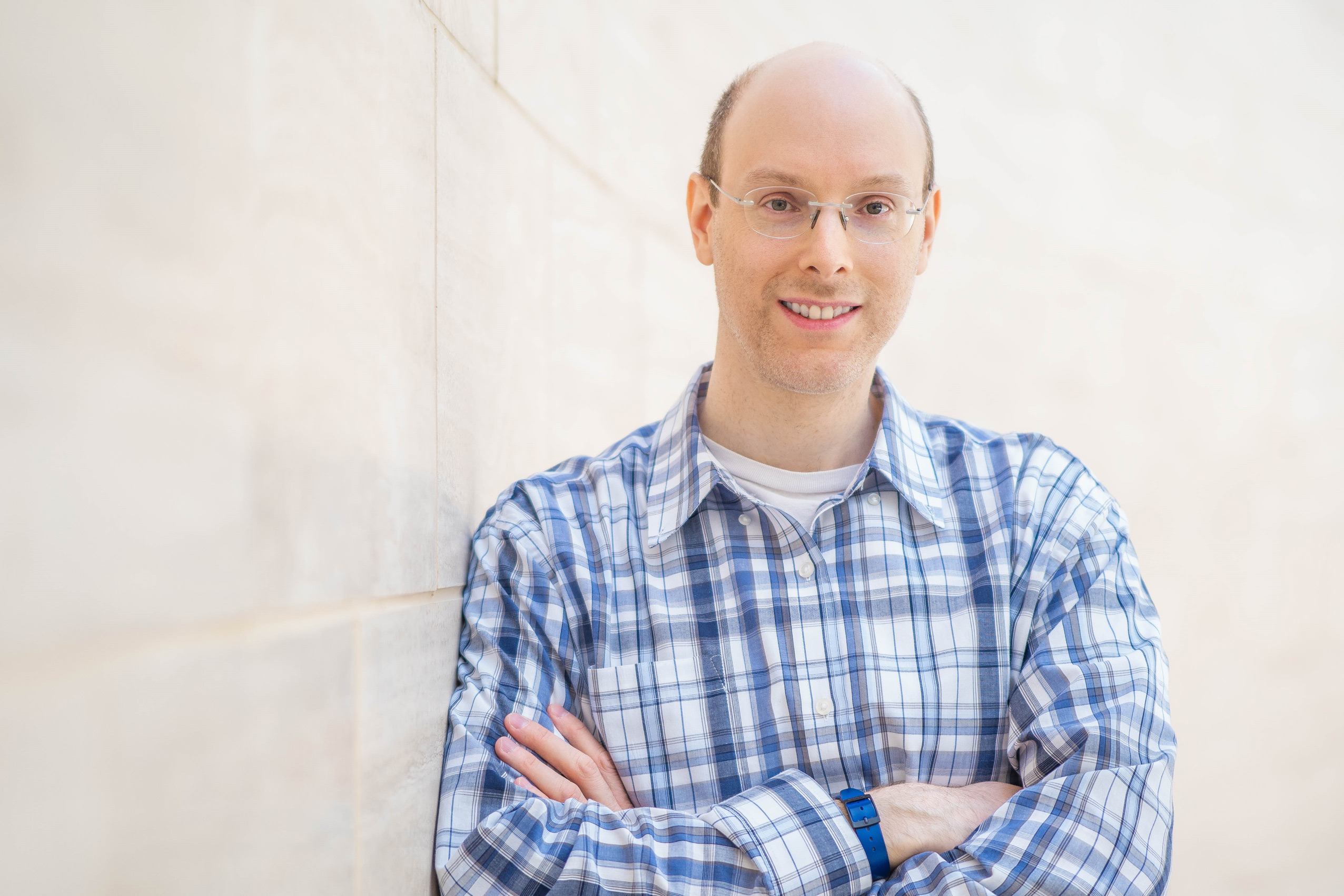WINER LAB
Lab focus
The immune system is a remarkable orchestrator in the body. While it is critical in fighting off infectious pathogens, it also has the capacity to communicate with other tissues and regulate fundamental physiology. The Winer lab is interested in understanding how the immune system influences physiological processes and contributes to chronic disease. Two focuses of the lab will be to understand how the immune system contributes to insulin resistance and diabetes as a model chronic disease, and also how immunology impacts the aging process itself.
During obesity and age related insulin resistance, chronic low grade inflammation is emerging as an important factor driving the disease process. The Winer lab has made fundamental findings in understanding how the immune system, including the adaptive immune system, contributes to low grade inflammation in metabolic tissues, such as the liver and fat, as well as in the intestines during diet induced obesity. The lab also investigates how metabolic changes inside immune cells are influenced by external hormones to control immune cell function during homeostasis and disease. Thus, the focus of the lab falls into the scope of the growing field of “immunometabolism”. The goal is to use this information to develop new translational diagnostics and therapeutics, including immune therapies and vaccines.
Why it matters
The worldwide levels of obese and aged populations are at their highest amounts in human history. Obesity and aging predispose to a wide variety of chronic health issues, including insulin resistance and diabetes, which is associated with significant morbidity, mortality, and economic burden on the healthcare system. The immune system is altered during obesity and aging, and may represent a crucial common link to better understand complications of these “conditions” and to devise novel immunotherapies for them.
The immune system likely plays a role in nearly every disease, even ones previously thought to be unrelated to immunology. It is only through the study of immunology that new immunotherapies, including vaccination approaches, be available for chronic diseases and processes associated with aging or obesity.
Dan Winer, MD
CENTER DETAILS
Dr. Dan Winer received an Honor’s BSc in immunology from the University of Toronto, followed by an MD from the University of Ottawa in 2002. He then completed residency training in Anatomical Pathology at the University of Toronto in 2007. Subsequently, Dr. Winer did a three-year post doc in immunology at Stanford University in the laboratory of Stanford Blood Center director, Dr. Edgar Engleman. During this time, Dr. Winer, collaborating with his twin brother Dr. S. Winer at the University of Toronto, spearheaded a new initiative which identified the adaptive immune system as an important player in the control of metabolic diseases such as obesity related insulin resistance and type 2 diabetes. Dr. D. Winer returned to Canada in 2010 and became an Assistant Professor at the University of Toronto in 2011, where he ran an obesity and inflammation research lab associated with the Toronto General Research Institute (TGHRI), before joining the Buck Institute.
Dr. D. Winer is the recipient of several awards including the Hubert Wolfe Award in Endocrine Pathology, the Benjamin Castleman Award for human pathology research (sponsored by the United States and Canadian Academy of Pathology and the Massachusetts General Hospital), the Amgen early investigator award (Endocrine Society), and the Canada Research Chair in Immunometabolism.
-
 Jordan Baechle, MD Postdoctoral Researcher
Jordan Baechle, MD Postdoctoral ResearcherJordan Baechle is a postdoctoral fellow who joined the Winer lab in April 2022. He received his B.S. from the University of Tennessee in Biochemistry and Molecular biology in Knoxville, TN, and his M.D. at Meharry Medical College in Nashville, TN, while continuing his research in metabolic changes in endocrine malignancies at Vanderbilt University Medical Center. His passion for translating scientific discovery and innovation to patient care brought him to the Masters of Translational Medicine program at the University of California (UC) Berkeley and UC San Francisco. He is extraordinarily curious about metabolic changes in aging and obesity as well as altered metabolism during space travel. His primary interests focus on the impact of insulin resistance on accelerated aging pathology and strategies for metabolic optimization in peak performance and longevity. He aims to use his range of experience to contribute to the development of interdisciplinary measures and therapeutics to combat insulin resistance, enhance healthy aging, and support safe space travel.
JBaechle@buckinstitute.org
-
 Alexander Chebykin Dominican University Graduate Student
Alexander Chebykin Dominican University Graduate StudentAlex received his B.S. in clinical laboratory sciences from University of Minnesota. After a career in medical diagnostics, he joined both Furman and Winer labs in January 2023 as a Master’s student from the Dominican University of California to pursue his interests in the biology of aging research. In his spare time, Alex enjoys physical exercise, boxing, hiking, and reading.
AChebykin@buckinstitute.org
-
 Zoe "Huixun" Du PhD Candidate, USC-Buck Biology of Aging Program
Zoe "Huixun" Du PhD Candidate, USC-Buck Biology of Aging ProgramHuixun "Zoe" Du joined the Winer lab as a graduate student from the University of Southern California-Buck Biology of Aging Ph.D. program in May 2021. Prior to this, she completed her B.S. in pharmaceutical sciences at the University of California-Irvine and studied the function of ion channel PIEZO1 in neural stem cell development. Currently, in the Winer lab, she is studying the relationship between mechanical forces and cellular senescence with the goal of better understanding fibrotic diseases.
HDu@buckinstitute.org
-
 Priya Makhijani PhD Candidate, University of Toronto
Priya Makhijani PhD Candidate, University of TorontoPriya is a PhD candidate who joined the Winer lab and the Buck Institute in June 2022. She began her PhD with 8 years of technical experience at various pharma and research institutes across the continent including Bayer Healthcare (Berkeley, CA) and Harvard Stem Cell Institute (Cambridge, MA), as well as a Master’s degree in developmental immunology (Toronto, ON). She spent the majority of her PhD studying macrophage and exosome interactions in tumor models at the Princess Margaret Hospital (Toronto, CA). Here, she leads a project on understanding gut immune interactions in Alzheimer’s disease using mouse models. Passionate about understanding immune contributions to chronic disease, she hopes to one day apply herself to uncovering novel therapeutic approaches.
PMakhijani@buckinstitute.org
-
 Max Manwaring-Mueller Postbaccalaureate Researcher
Max Manwaring-Mueller Postbaccalaureate ResearcherMax is a Molecular, Cellular and Developmental biologist from UC Santa Cruz (UCSC). During his undergraduate years, he worked in the Hinck lab to investigate triple negative breast cancers and potential therapeutic targets of the PI3K/Akt pathway. In August 2023, Max started as a post baccalaureate research assistant in both the Winer and Furman labs. Here, he works in the wet and dry labs to study mechanoimmunology and simulated microgravity's effects on the immune system and to transform raw lab data into compelling analytics and insights.
mmanwaring-mueller@buckinstitute.org
-
 Taylor Valentino, PhD Postdoctoral Researcher
Taylor Valentino, PhD Postdoctoral ResearcherTaylor joined the Winer lab in June 2023. He received his BS and MS in exercise physiology from San Francisco State University. There he studied gastro-intestinal distress and thermoregulation during ultra-endurance exercise. Taylor went on to investigate how the gut microbiome regulates skeletal muscle plasticity at the University of Kentucky, receiving a PhD in Physiology in 2022. After a brief time studying acetyl-Coa at the University of Utah, he found his way back to his hometown here in Novato. In the Winer lab Taylor will be studying how dietary exposures effect the immune system during aging. Outside of the lab Taylor loves spending time with his wife and two daughters, running, discovering fresh new IPAs and crying during all the Pixar movies with his kids.
TValentino@buckinstitute.org
-
 Fei Wu, PhD Postdoctoral Research Fellow
Fei Wu, PhD Postdoctoral Research FellowFei completed his Ph.D. degree in interdisciplinary aging studies at Tulane University in 2021. He holds an M.Sc in medical sciences from Institute for Ageing, Newcastle University, and was a scientist in QIAGEN(Suzhou). His research focused on host-pathogen interaction in senescent cells. He hopes his work leads to a better understanding of the aging process and contributes to extending the healthy life span of human beings.
FWu@buckinstitute.org
Selected Publications
- Tsai S, Clemente-Casares X, Zhou AC, Lei H, Ahn JJ, Chan YT, Choi O, Luck H, Woo M, Dunn SE, Engleman EG, Watts TH, Winer S and Winer DA. Insulin receptor mediated stimulation boosts T cell immunity during inflammation and infection. Cell Metabolism. 2018 Dec 4;28(6):922-934.e4.
- Ghazarian M, Revelo XS, Nøhr MK, Luck H, Zeng K, Lei H, Tsai S, Schroer SA, Park YJ, Chng MHY, Shen L, D’Angelo JA, Horton P, Chapman WC, Brockmeier D, Woo M, Engleman EG, Adeyi O, Hirano N, Jin T, Gehring AJ, Winer S, Winer DA. Type I Interferon Responses Drive Intrahepatic T cells to Promote Metabolic Syndrome. Science Immunology. 2017 Apr 21;2(10). pii: eaai7616.
- Winer DA, Winer S, Dranse HJ, Lam TK. Immunological impact of the intestine in metabolic disease. The Journal of Clinical Investigation. 2017 Jan 3;127(1):33-42.
- Revelo XS, Ghazarian M, Chng MHY, Luck H, Kim JH, Zeng K, Shi SY, Tsai S, Lei H, Kenkel J, Liu CL, Tangsombatvisit S, Tsui H, Sima C, Xiao C, Shen L, Li X, Jin T, Lewis GF, Woo M, Utz PJ, Glogauer M, Engleman EG, Winer S, Winer DA. Nucleic Acid Targeting Pathways Promote Inflammation in Obesity Related Insulin Resistance. Cell Reports. 2016 Jul 19;16(3):717-30.
- Winer DA, Luck H, Tsai S, and Winer S. The Intestinal Immune System in Obesity and Insulin Resistance. Cell Metabolism. 2016 Mar 8;23(3):413-26.
- Luck H, Tsai S, Chung J, Clemente-Casares X, Ghazarian M, Revelo XS, Lei H, Luk CT, Shi SY, Surendra A, Copeland JK, Ahn J, Prescott D, Rasmussen BA, Chng MHY, Engleman EG, Girardin SE, Lam TK, Croitoru K, Dunn S, Philpott DJ, Guttman DS, Woo M, Winer S, Winer DA. Regulation of Obesity Related Insulin Resistance with Gut Anti-Inflammatory Agents. Cell Metabolism. 2015 Apr 7;21(4):527-42.
- Winer DA, Winer S, Shen L, Wadia PP, Yantha J, Paltser G, Tsui H, Wu P, Davidson MG, Alonso MN, Leong HX, Glassford A, Caimol M, Kenkel JA, Tedder TF, McLaughlin T, Miklos DB, Dosch HM, Engleman EG. B cells promote insulin resistance through modulation of T cells and production of pathogenic IgG antibodies. Nature Medicine. 2011 May;17(5):610-7.
- Winer S, Chan Y, Paltser G, Truong D, Tsui H, Bahrami J, Dorfman R, Wang Y, Zielenski J, Mastronardi F, Maezawa Y, Drucker DJ, Engleman E, Winer D, Dosch HM. Normalization of obesity-associated insulin resistance through immunotherapy. Nature Medicine. 2009 Aug;15(8):921-9.
Dr. Winer’s Pubmed link









